How Brighton Pride is tackling drugs at this year’s celebrations
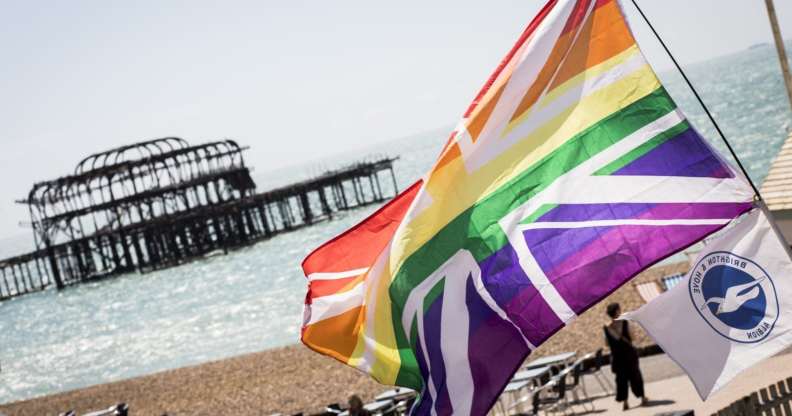
A rainbow Union Jack is flown on the beach during Brighton Pride Parade, 2017 (Tristan Fewings/Getty)
Glitter, rainbows, and… meth? Underneath the shiny surface of Brighton Pride, which takes place this weekend, is the dark presence of an underground drug culture.
The UK’s largest pride event strives to eliminate dangerous drugs from the celebrations, but achieving this goal proves difficult when thousands of people gather in Brighton every year to join the extravaganza.
-
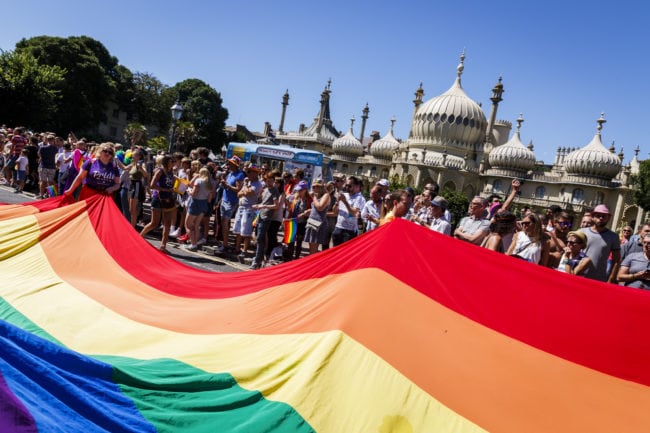
The rainbow flag is carried through the streets at the Brighton Pride Parade on August 6, 2016 in Brighton, England. (Tristan Fewings/Getty)
Brighton, a city of nearly 300,000 residents, has had a problem with drug abuse for a long time, only making its way off the list of worst-affected cities for drug deaths last year—after being featured on it for over a decade.
It held the position of drug death capital of the UK six out of eight times from 2004 to 2012 and reached the highest number of deaths ever in 2009 when 23.5 people out of every 100,000 died from causes related to drugs.
Brighton Pride regularly sees drug-related arrests and hospitalisations in the days surrounding the event. Last year’s event was preceded by a series of drug raids in Brighton and Hove that resulted in six arrests, as well as the confiscation of illegal drugs, cash and drugs paraphernalia.
-
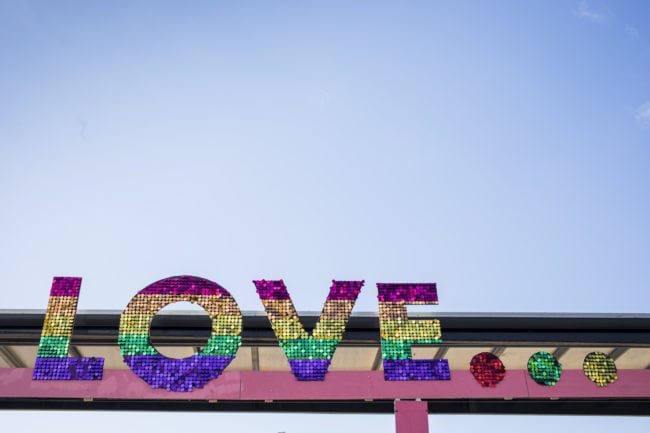
A rainbow love banner is displayed on a float ahead of the annual Brighton Pride Parade And Festival on August 5, 2017 in Brighton, England. (Tristan Fewings/Getty)
This was not the first drug raid leading up to Brighton Pride. In 2012, Sussex Police searched the homes of suspected dealers and seized substances believe to be ketamine and GHB, as well as cannabis, heroin, and cocaine. In 2013, Sussex Police arrested three people on suspicion of possession and intent to supply.
“Drugs including what we believe to be crystal meth were seized during these raids, which means they won’t be on the streets during this weekend’s celebration in the city,” said detective inspector Julie Wakeford in a statement following the 2017 raids.
Still, approximately 27 people were arrested at the 2017 Brighton Pride on various charges, including the possession or dealing of drugs, and 204 people were treated by medics for various health issues, including drug-related illnesses and injuries.
Brighton Pride has taken other safety precautions over the years, including banning legal highs such as poppers, becoming the first Pride event to introduce drug sniffer dogs in 2006, and implementing security measures, such as searches, drug tests, and amnesty boxes at the entrances, to prevent the sale or spread of illegal substances on the premises.
“Months of planning goes on behind the scenes in the lead up to Pride each year,” Sussex Police media relations officer Hannah Butt told PinkNews in a statement. “We have taken reasonable steps to ensure the safety of those attending Pride events in the city.”
-
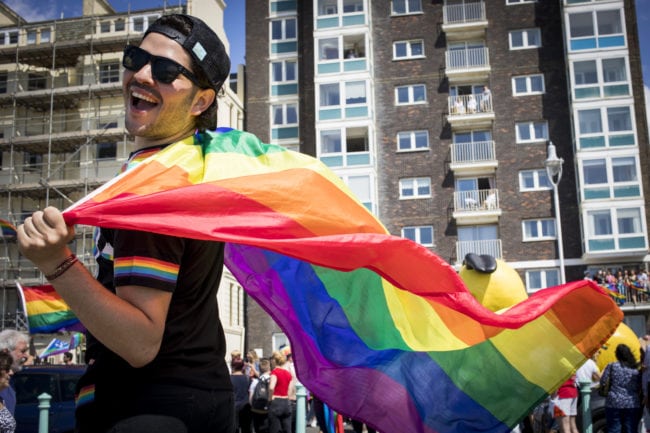
A man holds a Pride flag during the annual Brighton Pride Parade And Festival on August 5, 2017 in Brighton, England. (Tristan Fewings/Getty)
Sussex police have been cracking down on drugs leading up to and at Brighton Pride since new management took over in 2012 and there has been a decrease in the number of arrests at Brighton Pride over the last few years, but even organisers believe it’s unrealistic that an event this size could ever be completely drug-free.
“As with all major festivals and events there will always be a percentage who will take drugs, but this is certainly not the case for everyone,” Brighton Pride communications and media staff member Chris Jepson told PinkNews.
“We support efforts to reduce harm from taking drugs and alcohol and this year have enhanced welfare and medical provision for the safety of all attendees,” he added.
With the relaxed environment and party appeal, Brighton Pride is a prime target for both drug sale, consumption and experimentation, especially as the event continues to grow, with an estimated 400,000 people expected to attend this year.
“Pride is the kind of place where people are willing to try new things, which brings risks,” said Chris Smith, the health promotion team leader at Pavilions, a Brighton organisation that provides help and support to adult drug and alcohol users and sponsors Pride briefings.
Smith said there is always a “massive increase” in the number of people that Pavilions treats during Brighton Pride weekend.
-
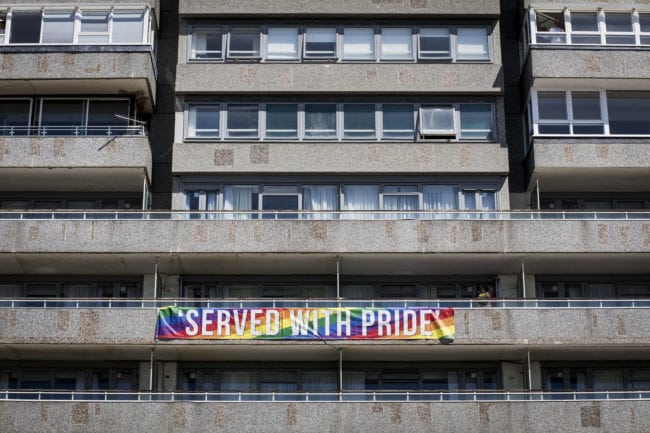
A rainbow Pride banner is displayed on a building during the annual Brighton Pride Parade And Festival on August 5, 2017 in Brighton, England. (Tristan Fewings/Getty)
In this year’s briefing for police, staff and volunteers at Brighton Pride, Pavilions advised that it is important for participants to stay hydrated and know exactly what they are taking at all times. The briefing includes specific examples of the risk of getting drugs from a stranger. For instance, a pill sold as ecstasy could actually be PMA, a hallucinogen stimulant that is extremely dangerous even in low doses, and could potentially give the user a seizure.
“Buying off people they randomly meet is dangerous,” said Smith. “Dealers want to make money so they’ll sell anything to anybody. If people use substances regularly where they live, they know what they are, but if they go somewhere else, they don’t know what they’re taking.”
Despite the risks and seemingly impossible feat of having a completely drug-free event, the Brighton Pride team seems convinced that they have done all they can to ensure a safe weekend.
The event website says that there will be more security this year, including an increase in the number of armed police officers, and all volunteers and staff have received specialist training.
“We have increased searching at the entrance to all our ticketed events,” Jepson told PinkNews. “We will confiscate any illegal drugs we find during our bag searching operations throughout the festival,” he added.

